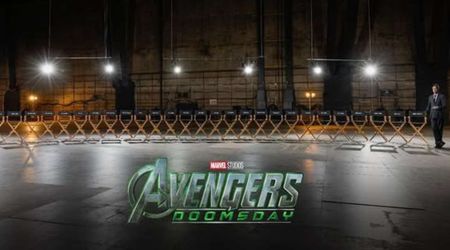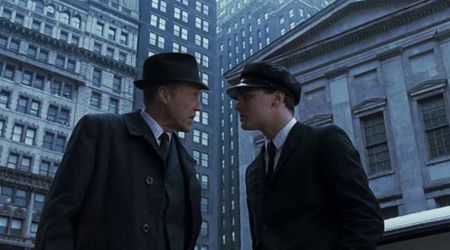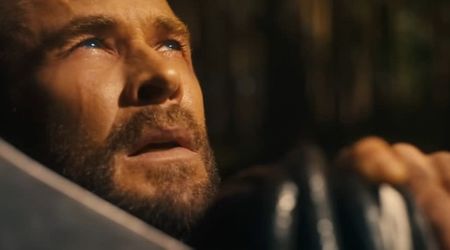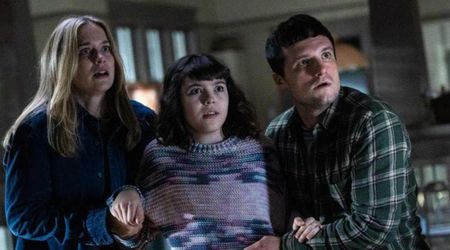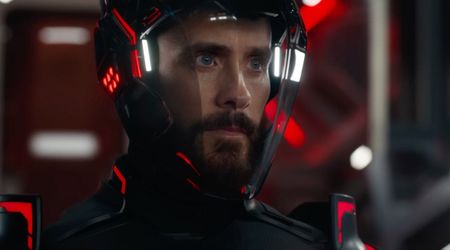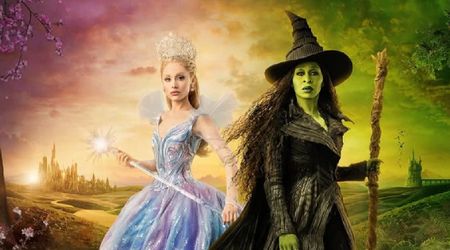'The Jazz Ambassadors': Racism, civil rights and how Jazz legends fought the Cold War through music

'The Jazz Ambassadors,' a new documentary on PBS tells the little-mentioned stories in the lives of jazz legends like Louis Armstrong, Duke Ellington, Dizzy Gillespie and Benny Goodman, who along with their mixed-race bands, were deployed to fight on the frontlines of the Cold War, giving the Civil Rights movement in the United States a voice on the world stage when it most needed one.
Narrated by Leslie Odom Jr., and drawing on an archive of incredible musical performances, detailed personal accounts of the tours and cinematic re-constructions of crucial events, the film immerses viewers in this thrilling journey, accompanied by a truly swinging soundtrack, helmed together by Michael J. McEvoy ('Finding Your Feet', 'Me and Orson Welles').
The film features prominent figures from both the jazz world as well as the political world of the 60s. It features the likes of Quincy Jones, Dizzy Gillespie's drummer Charlie Persip, and Darius Brubeck - son of jazz legend Dave Brubeck. It's directed by Peabody Award-winning director Hugo Berkeley (Land Rush, A Normal Life).
The Cold War and Civil Rights movement collide in this story of music, diplomacy and race. In 1955, as the Soviet Union’s pervasive propaganda about the U.S. and American racism spread globally, African-American Congressman Adam Clayton Powell, Jr. convinced President Dwight Eisenhower that jazz was the best way to intervene in the Cold War cultural conflict.
For the next decade, America’s most influential jazz artists, including Dizzy Gillespie, Louis Armstrong, Duke Ellington, Benny Goodman and Dave Brubeck, along with their racially-integrated bands, traveled the globe to perform as cultural ambassadors. But the unrest back home forced them to face a painful moral dilemma: how could they promote the image of a tolerant America abroad when the country still practiced Jim Crow segregation and racial equality remained an unrealized dream?
The documentary addresses a lot of intriguing questions. How did the 'ambassador' plan originate? Why did the musicians agree to do it? The answers are far more complex and inspiring than can be imagined; among other things, one of the first black congressmen, Adam Clayton Powell Jr., conceived the plan and sold it in Congress; the musicians saw how they were being used, but also grabbed the opportunity to show up as themselves and to let the power of their music and personalities changes hearts and energy in ways the power structure scarcely grasped.
They also gained a window on freedom movements around the world, and brought back perspective that impacted the movements for civil rights at home. It's a story that is much needed to be told in the world today.
The timing of the release couldn't be more perfect. Today's bipartisan political climate has left race tensions high. With the recent wave of police brutality incidents and in wake of the #blacklivesmatter movement, the film seems to have a finger firmly on the political tone of the times. Moreover, as with every era of political turmoil, the music of today is playing an integral role serving as a voice of protest.
The last few years have seen a rapid rise in the reunions of bands from far and wide, almost urgently spurred into action by the 'Sign o' the times' as Prince put it. While the songs of protest make a comeback through reformations of acts like Prophets of Rage, System of a Down, Superchunk and The Breeders etc, hip-hop has transcended its boundaries and become the most pervasive genre around the world. At the forefront of the movement are the likes of Pulitzer Prize winner Kendrick Lamar, J. Cole, Pusha T, Killer Mike and T.I. Meanwhile, old-timers like Eminem and Jay Z are also back to make a statement, stalwarts who are using the didactic power of music to move fans into action.
There are some lovely, buzzworthy moments to look forward to in the documentary. This includes a touching moment when Louis Armstrong performs in the British West African colony of The Gold Coast (now Ghana), where he dedicates the iconic song “Black and Blue,” about the agony of racism, to Prime Minister Kwame Nkrumah.
Another noteworthy segment is when Quincy Jones shares his incredible experiences at age 22 as Dizzy Gillespie’s musical director, arranger and trumpet player with the band, performing in countries including Iraq, Iran, Syria and Pakistan. And perhaps the most chilling clip is that of a rare interview on Swedish Television amidst the U.S. struggle for Civil Rights, when Duke Ellington discusses the sacrifices and cultural contributions made by African Americans, as well as jazz being recognized as “the American Music” while the genre was “mostly Negro.”
With all this and more, 'The Jazz Ambassadors' takes a page from history and reminds us of the power of music when it comes to shaping the culture of the times.
The documentary premieres Friday, May 4 at 10 p.m. on PBS. Streams beginning May 5 on pbs.org and PBS apps.



